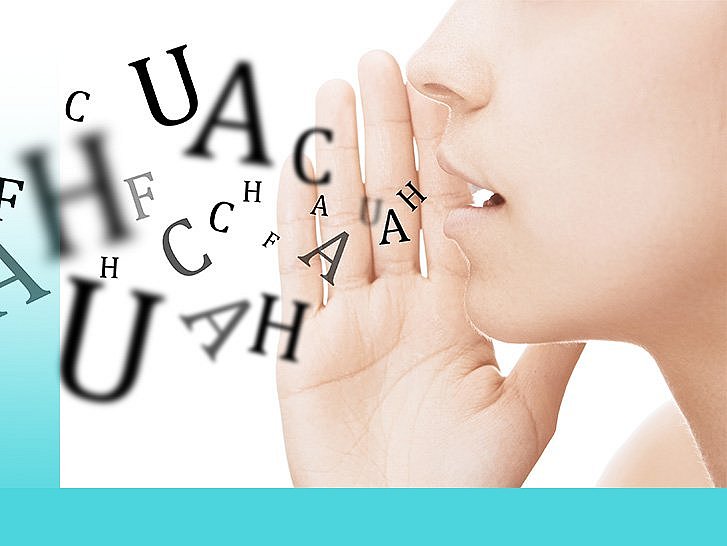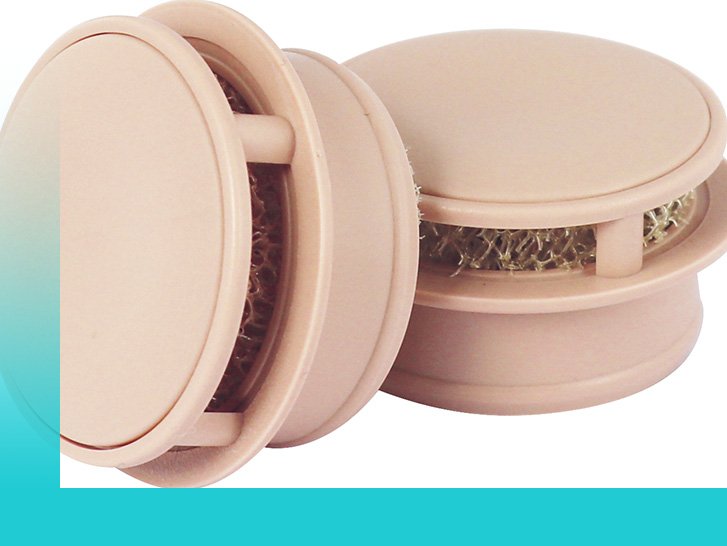Managing everyday situations
After a serious illness and sometimes long-term or even permanent changes in physical integrity such as a tracheostoma, the return to everyday life is often perceived as a particular challenge by those affected and their relatives. Things of daily life that were previously performed as a matter of course have to be relearned or accomplished under different conditions. For example, neck-breathers can no longer enjoy an overhead shower in the morning without special preparations. Fortunately, special aids can significantly reduce the risk of water entering through the tracheostoma. However, the immediate danger from the shower or bathtub must be primarily recognised and accepted.
For example, patients should always use non-slip bath liners to prevent the neck opening from slipping below the water surface! Especially during the first weeks and months after surgery, a handy emergency signal device can offer safety and should be kept close at hand in the bathroom so that relatives or neighbours can be alerted in emergency situations. Laryngectomised patients are often particularly irritated by the change in their own voice. If we take into account that people are identified to 70% by their voice, it is understandable that patients often feel insecure despite voice rehabilitation with aids and logopaedic training. Reference to the voice being a mirror of the soul also conveys its special significance.
It is therefore understandable that in the first phase after the operation, those affected avoid certain situations such as buying bread, making phone calls, large gatherings of people, etc. and react sensitively to negative experiences within the social environment. It is not uncommon for this to quickly lead toprivate and social isolation as well as a barrier to professional reintegration.

The team of specialists from different areas (aid supplier, speech therapist, nursing, physicians, etc.) is called upon here to accompany these initial difficulties, to analyse them and to achieve optimisation through individual adjustments. Especially in the context of professional activities, but also for the management of emergency situations, telephone intelligibility, for example, is an important marker and safety aspect. Voice recordings made by relatives for emergency situations at home can also be helpful in informing the emergency medical services or fire brigade in a comprehensible manner if necessary. The development of personally appropriate response strategies is a worthwhile challenge for everyone concerned.
The existing pulmonary effects after a tracheostomy/laryngectomy also make the everyday situation difficult for those affected. Secretion formation with increased coughing, productive secretion and corresponding noises are often perceived as unpleasant and disturbing by relatives, but especially when meeting strangers, e.g. in restaurants or cinemas - and unfortunately also judged accordingly.
A tip: dealing confidently with everyday situations develops over time.
The removal of the larynx leads to the loss of the "abdominal press" in addition to many of the consequences already described. This function enables us to lift heavy loads, e.g. when shopping or to perform physically demanding tasks in a professional environment. But the abdominal press is also of particular importance for maintaining digestive function. Experience has shown that little importance has been attached to this in the context of laryngectomy, especially by patients. Even taking meals can become a stumbling block. In the course of the different therapies, various disorders of the swallowing function can occur, particularly in laryngectomised patients. Radiation causes dry mouth, for example, which can also lead to a more difficult transport of food through the swallowing pathway. The size and consistency of the food can also be crucial. It is therefore not uncommon for eating habits to change in the course of the disease, partly unconsciously but noticeably: longer duration of meals, different food preferences, reduction of quantities and tendencies towards an unbalanced diet.
The onset of malnutrition, at least in terms of quality, with a reduction in performance and loss of quality of life, is to be expected. Limitations in activity, a reduction in the radius of action and physical resilience when walking - especially uphill, climbing stairs and possibly doing sports - are not uncommon. And not to be forgotten, the limitations in smell and taste as the altered airway bypasses the olfactory receptors located in the nose. This issue must also draw attention to another aspect of the changed everyday situation. Restricted smell can pose a danger, especially in the domestic environment, when forgotten and burnt food on the cooker is not noticed until it is too late and which may then lead to having to fight the source of a fire. It is highly recommended to install smoke detectors in the rooms. It should also be noted in this context that even blowing out a candle must first be relearned by the laryngectomised person.



